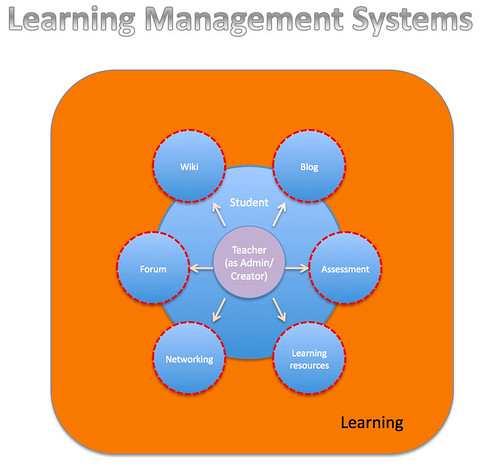LMS or Should We Say MS?
I read a very interesting blog today from Ray Fleming titled "Do You Really Need A Learning Management System?" What interested me most was the chart showing the use of different components of a Learning Management System (LMS). It's the first time I've seen some evidence of something I've believed has been happening. The chart on Ray's blog shows that components most used in a LMS are:
- Documents posted 60%
- Announcements 52.5%
- Grade centre 47.3%
Then quite a drop off in components used such as:
- Discussion board 12%
- Assignments 4.9%
- Blogs 3.8%
- Wikis 1%
Sadly it looks like the powerful e-learning tools such as wikis, blogs and discussion boards are being under utilised by teachers. I'm not particularly blaming teachers here, I'm guessing it could be more of a problem with a lack of training put in place to support them in the effective and appropriate use of these systems.
 |
| Image from Flickr (Vickel_N) |
So, not really much of a Learning Management System, more of a Management System where documents are stored and the head teacher makes announcements to the school! Bit of a waste of money don't you think?

Comments
Post a Comment